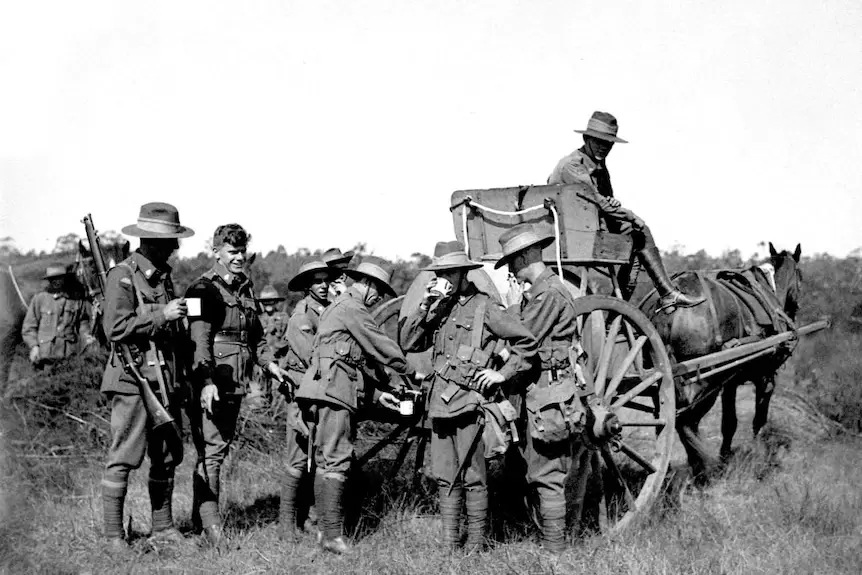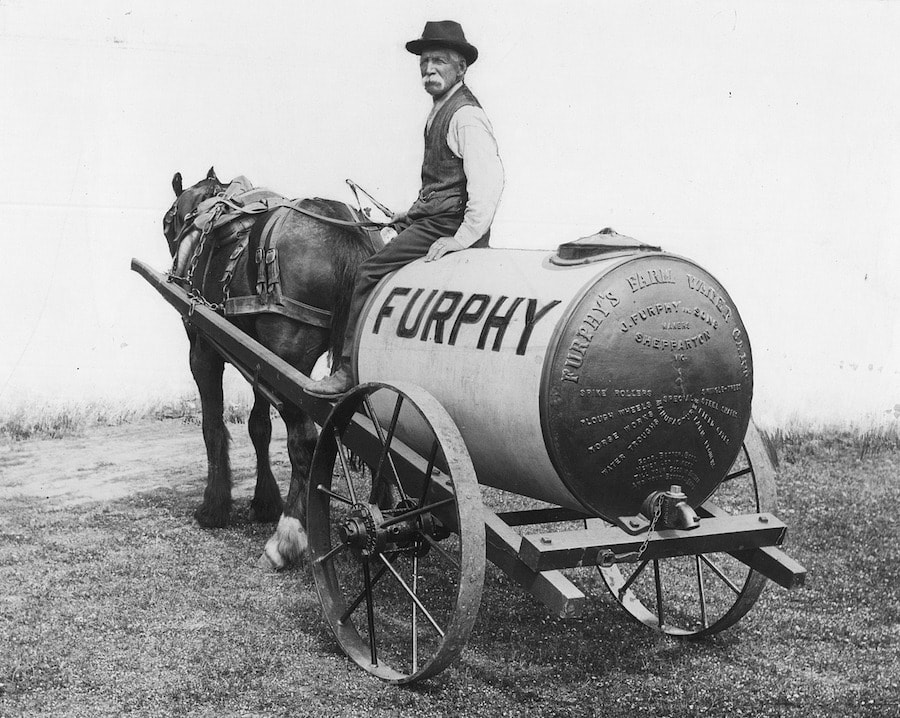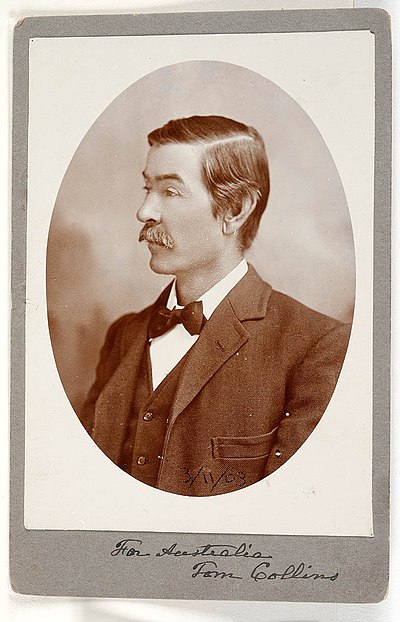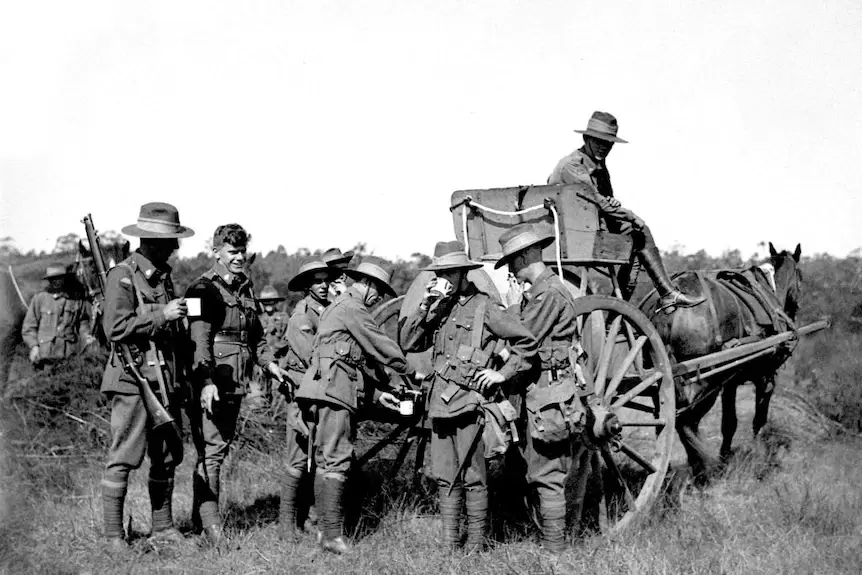|
If you asked an ANZAC returning from the Western Front in France in 1918 what a ‘telling a furphy’ was, he’d tell you it was the kind of yarn you heard being swapped when the soldiers gathered around the watercart behind the front lines. The news was always supposed to have come from reliable sources, but when received second or third hand, it was usually drained of truth. So, the Furphy family name eased into Australian slang as a way of describing suspect information being passed on by dodgy people. Oddly enough, the Furphy watercart itself is linked with a couple of brothers fiercely dedicated to speaking truth and encouraging people to live at their best. The inventor John Furphy was born into an Irish immigrant family. He became an innovative blacksmith and wheelwright in the early days of Shepparton, Victoria. John was also an active Methodist lay preacher and a determined opponent of strong drink. That’s part of the reason he had the encouragement, ‘Good better best, never let it rest, till your good is better and your better best’ cast into the metal end-plate of the Furphy water-tankers that spread across back country farms. That was the message that went with them to the battlefields of France.
John’s younger brother Joseph was a literary genius and a prophet skilled at humorously denouncing the sins of his own generation. He has been credited with being the father of the Australian novel and someone even described him as ‘the Australian Shakespeare.’ His signature piece was ‘Such is Life’ written under the name Tom Collins and when he sent the manuscript to the editor of The Bulletin, he proudly declared it, ‘offensively Australian.’ The author drew first-hand on the toughest experiences the bush could deliver. For a start, drought drove him off his farm. Then after five years of tramping beside his bullock team, taking supplies from the railhead at Hay out to outlying sheep stations, disease killed his beasts. Destitute, he retreated with his family to his brother’s foundry in Shepparton where he spent the day hammering at the anvil in the forge and his nights in a tiny lean-to, penning his moral tale in painstaking copper-plate script by the light of a lantern. His hardships never soured him. By the turn of the 20th century, he stood alongside Henry Lawson and Banjo Patterson in the search for an authentic Australian voice. Joseph admitted to being ‘a slave of the printed book’ from childhood. His mother had taught him in their bush shanty from the Bible and Shakespeare. This was the foundation of his lifelong belief that there was no reason why a manual worker should be ignorant and illiterate. A shearer who camped with him one night remembered him as ‘the most learned bushman that I have ever met, a real bushman.’ He went on to reflect that ‘Joseph Furphy was of us, but not one of us’ Joseph Furphy could be dubbed a true Australian prophet simply for his ability to be both firm and cheerful in refusing to swim with the tide. Free-thinking literary circles called him a wowser and a hypocrite because he expressed a genuine affection for the working man, yet despised their ruinous drinking in bush pubs. He upset the atheists by pronouncing that an intelligent man would make Jesus the carpenter the measure for all his moral values. He offended some in religious circles when he announced he would only belong to a church that would excommunicate him if he insisted on keeping two coats where his brother had none! Unlike many of the clergy at the time, he tried hard to apply the Bible’s teachings to the development of Australian society. He attacked greedy people in high places declaring, 'I acknowledge no aristocracy except one of service and self-sacrifice, in which he that is chief shall be servant, and he that is greatest of all, servant of all'. The bushman in him saw Jesus in unlikely people. ‘The swagman we always have with us – (and it is) the grave truth, that the Light of the world, the God-in-Man, the only God we can ever know, is by his own authority, represented for all time by the poorest of the earth.’ The Furphy brothers had their flaws, but one thing they did do was set a bench mark in Australia for devotion to speaking truth. Maybe it’s time to redefine what it means to ‘tell a furphy’!
2 Comments
Daniel Horsburgh
4/30/2022 07:00:14 pm
Thanks Paul. Brilliant….again
Reply
Jacinth Myles
5/24/2022 04:21:30 pm
In the past 20 days I have really enjoyed all of the stories you have on your website – thank you for this ministry of encouragement & witness.
Reply
Leave a Reply. |
AuthorJoin The Outback Historian, Paul Roe, on an unforgettable journey into Australia's Past as he follows the footprints of the Master Storyteller and uncovers unknown treasures of the nation. Archives
October 2023
Categories
All
|
|
Sponsored by
|
Privacy Policy
|
|
Copyright 2020 by The Outback Historian
|
Site powered by ABRACADABRA Learning
|





 RSS Feed
RSS Feed

